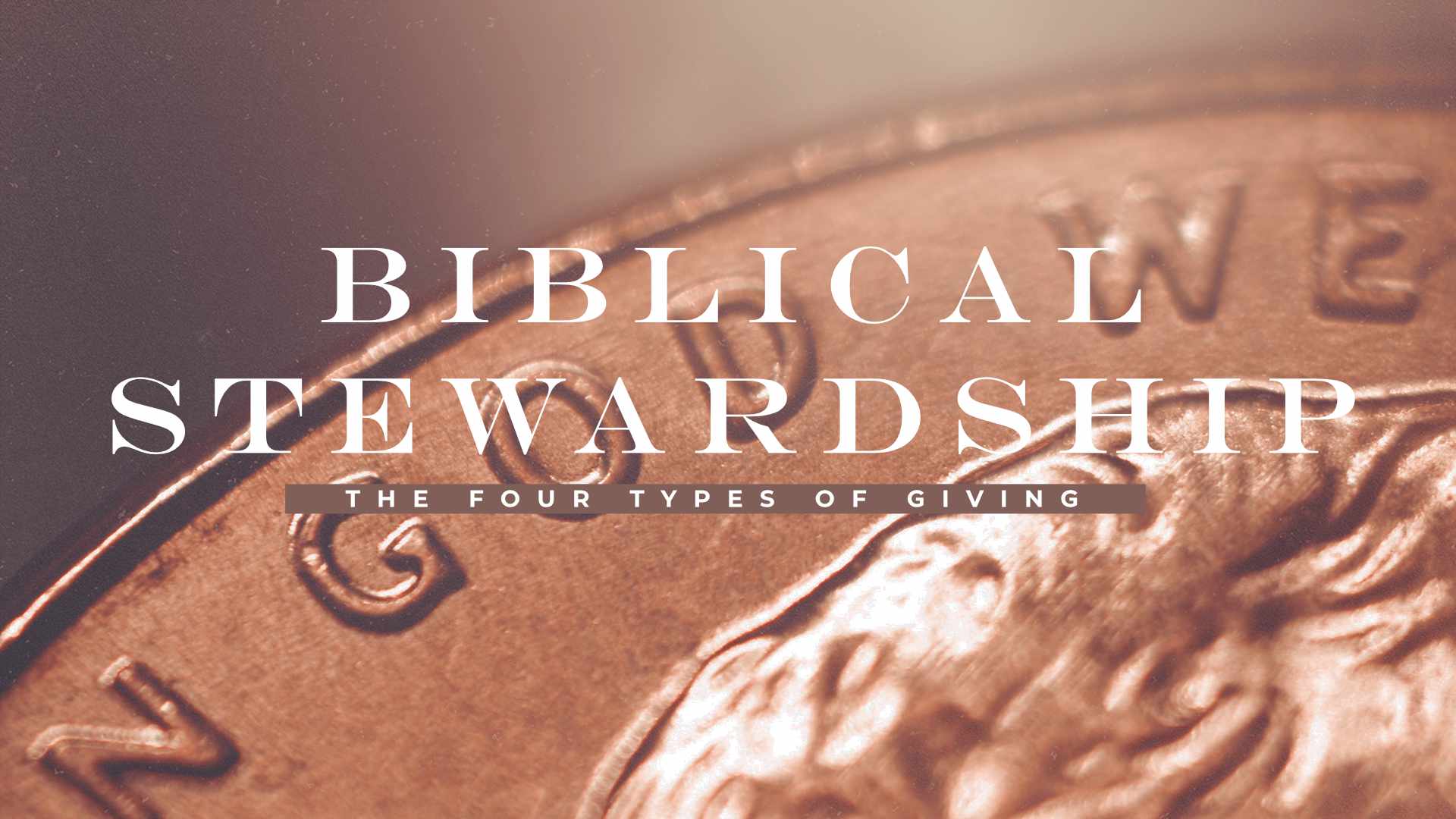I. Recap from last Sunday:
A. Living by the principles of the kingdom.
1. Ephesians 3:10&11
2. We manifest, or make known by the way that we live, the wisdom of God to principalities, and powers by practicing the principles of God.
a. Not by memorizing doctrine and winning debates.
b. By embodying these principles by living them out in our daily lives.
B. Biblical references.
1. Joshua 1:7&8
2. Psalm 1:1-3
3. Jeremiah 17:5-11
C. Principles.
1. Walk in love: it’s the fulfillment of the law. (Moral Law still applies.)
2. Seek first the Kingdom. (Instead of food, clothing, our own glory.)
3. Be a Generous Giver. (The on ramp to the kingdom economy.)
D. Four types of giving.
1. There are only four types of giving mentioned in the bible:
a. The Tithe, Offerings, Alms and First Fruits giving.
b. The tithe comes first because (1) it affirms the covenant and (2) it tests our heart attitudes towards money.
2. To live by God’s economic principles, we need to understand these.
II. The Tithe
A. Tithing is the 1st type of giving we see in the Bible.
1. Genesis 14:18-20 Abraham gave Melchizedek a tenth of all he had.
2. What is going on here, who are the players?
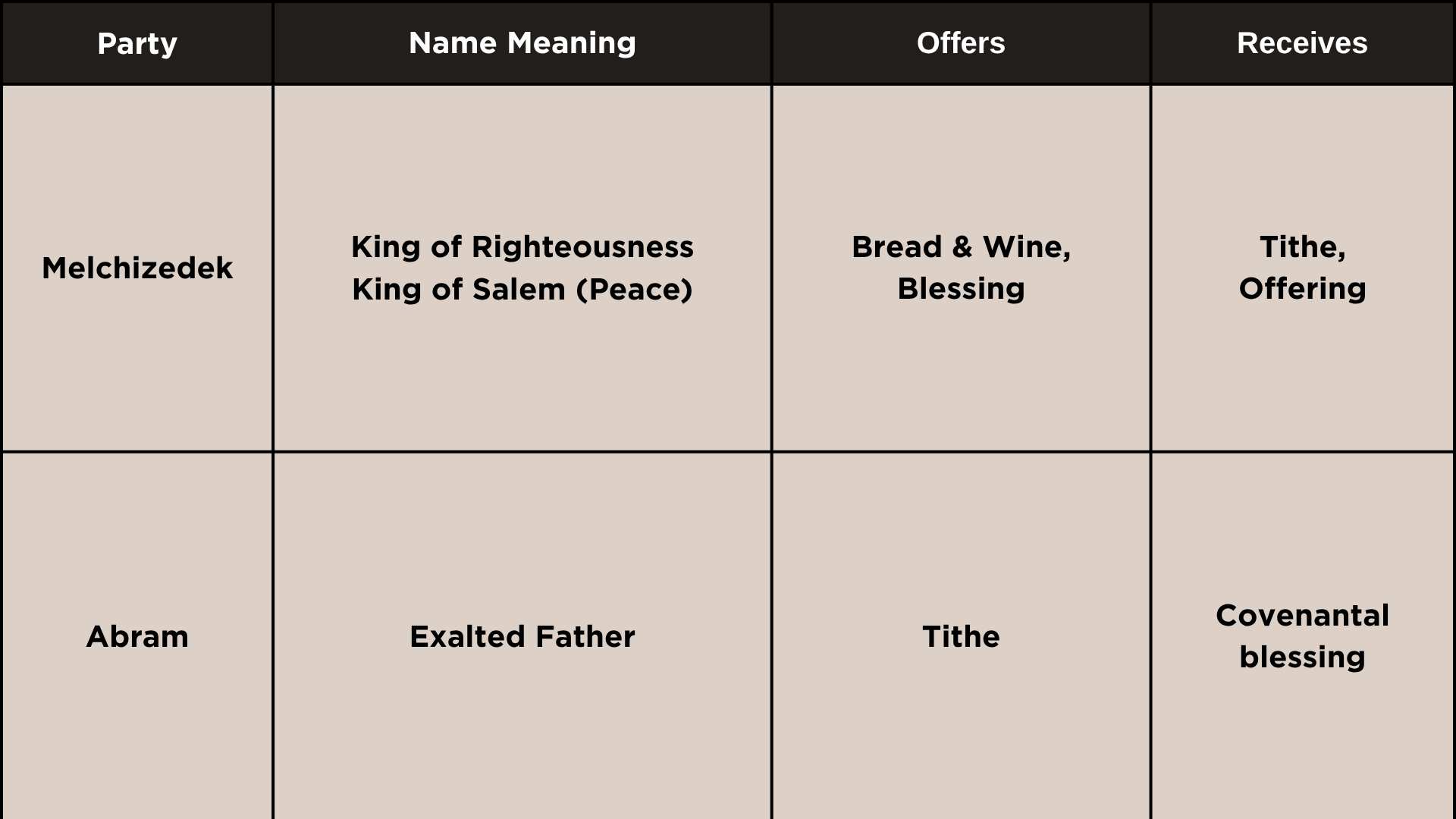
3. Why is Melchizedek’s blessing important?
a. Blessing: “barak” in Hebrew, literally means, ‘to kneel’
b. God’s blessing means that He is stooping down in kindness to enrich, empower and bestow favor
4. More meanings for barak, or blessing:
a. to bestow prosperity or success (material or spiritual)
b. to speak good over someone (words of favor or fruitfulness)
c. to empower to thrive or flourish
d. to grant peace, health, long life, or fruitfulness
e. to show divine favor that results in influence, multiplication, or protection
5. Examples:
a. Genesis 1:28 – “And God blessed them, and God said to them, ‘Be fruitful and multiply…’”
b. here, blessing is tied to fruitfulness, dominion, and purpose.
c. Genesis 12:2–3 – “I will bless you… and you will be a blessing… all peoples on earth will be blessed through you.”
d. this shows that blessing is both received and transmitted to others.
6. What we see in these three scriptures is that tithing is part of the covenant of peace that God made with Abraham.
7. God was saying to Abraham “I will actively work to cause you to thrive, to fulfill your purpose, and to be a conduit of My goodness to others.”
B. Part of the Covenant.
1. We should note that the tithe came before the law. The Israelites were required to tithe in the Mosaic Law, but that’s because tithing was part of the covenant with Abraham, their ancestral father.
2. The Mosaic Law was fulfilled in Christ and no longer applies, but the tithe, which came before the Law, still applies.
3. Galatians 3:26-29
4. Vs 29 starts with us being in Christ, skips over the Mosaic Law (doesn’t even mention it) and connects us all the way back to Abraham.
a. Not “If you are Christ’s, then you are of Moses…”
b. But “If you are Christ’s, then you are Abraham’s…”
5. The tithe is how we uphold the Abrahamic Covenant. (Tithing is a covenant issue.) A
covenant that is not based on keeping the Law, but based on faith.
a. The promise is not limited to Abraham’s natural descendants in the flesh, but also to all those who believe in Jesus.
6. Tithing is a covenant issue. Galatians 3:26-29 connects us to Abraham by our faith in Christ, again, the King of Righteousness, the Prince of Peace. When we tithe, we affirm that we are agreeing to this covenant.
7. Remember the exchange between Melchizedek and Abraham in Genesis 14. Melchizedek, King of Salem, offers Abram bread & wine and a blessing. In return, Abram offers him a tenth of all. As heirs of the promises of Abraham, as partakers of the covenant of blessing, this is how the exchange looks for us.
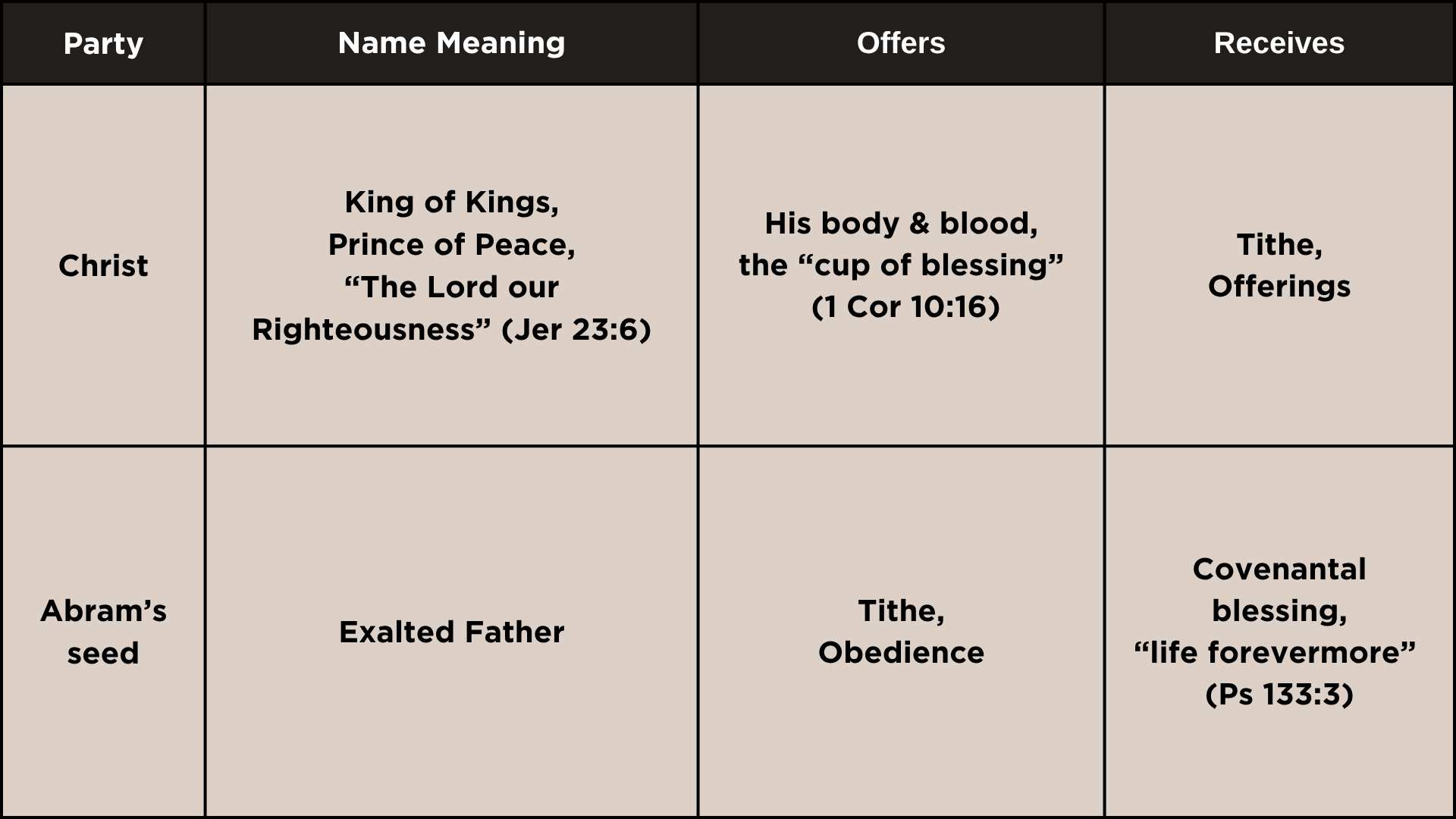
8. God offers us the same blessing that He gave to Abraham, our father, as part of the covenant. “I will actively work to cause you to thrive, to fulfill your purpose, and to be a conduit of My goodness to others.”
C. A brief word about covenants in the Bible.
1. A covenant is a sacred bond, a binding relationship that is stronger than legal obligation. Different form a contract which is impersonal and transactional.
2. Differences between covenant and contract:
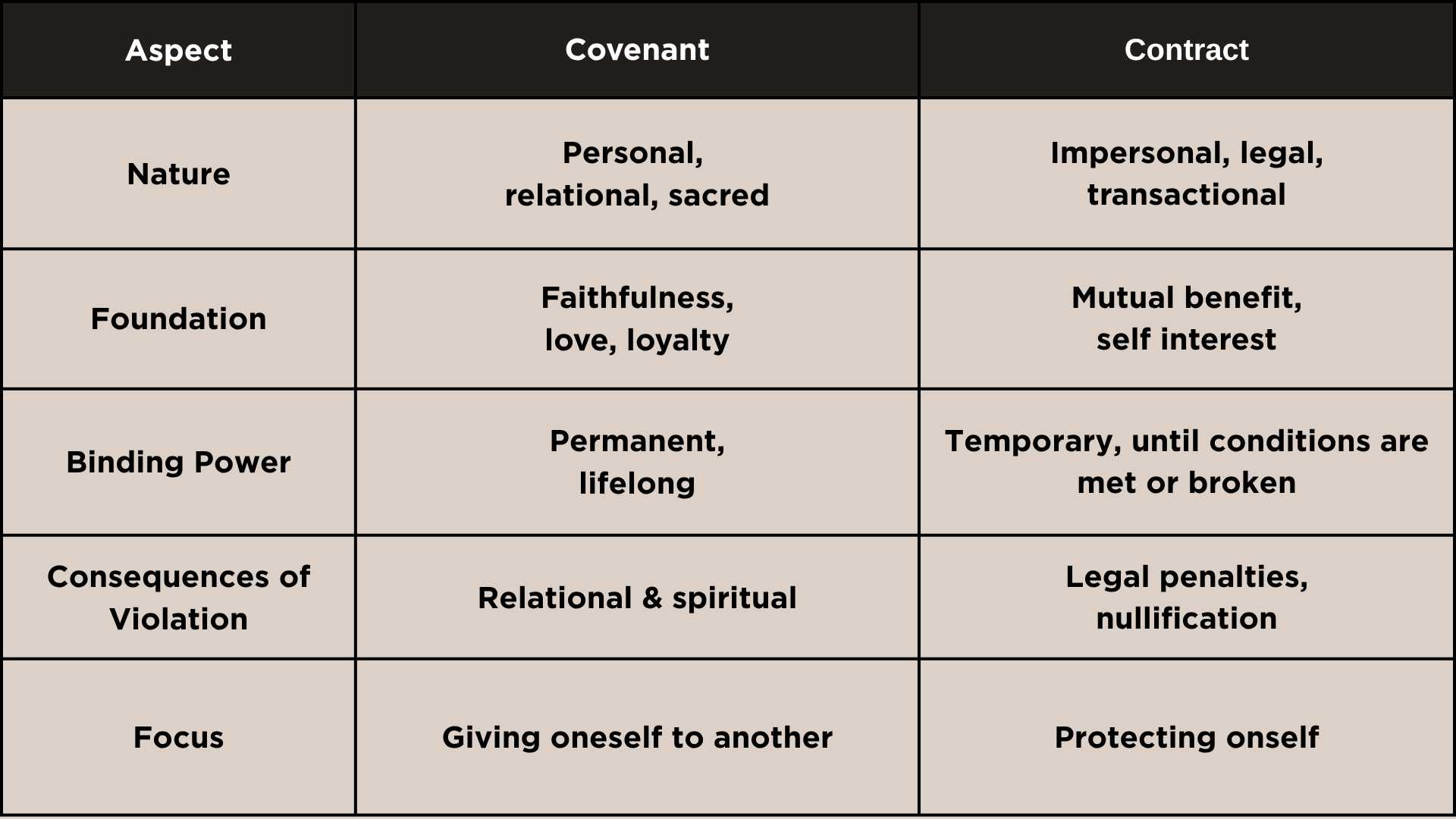
a. Good way to remember: In a covenant you give yourself, in a contract you protect yourself.
3. The Five Major Covenants in scripture.
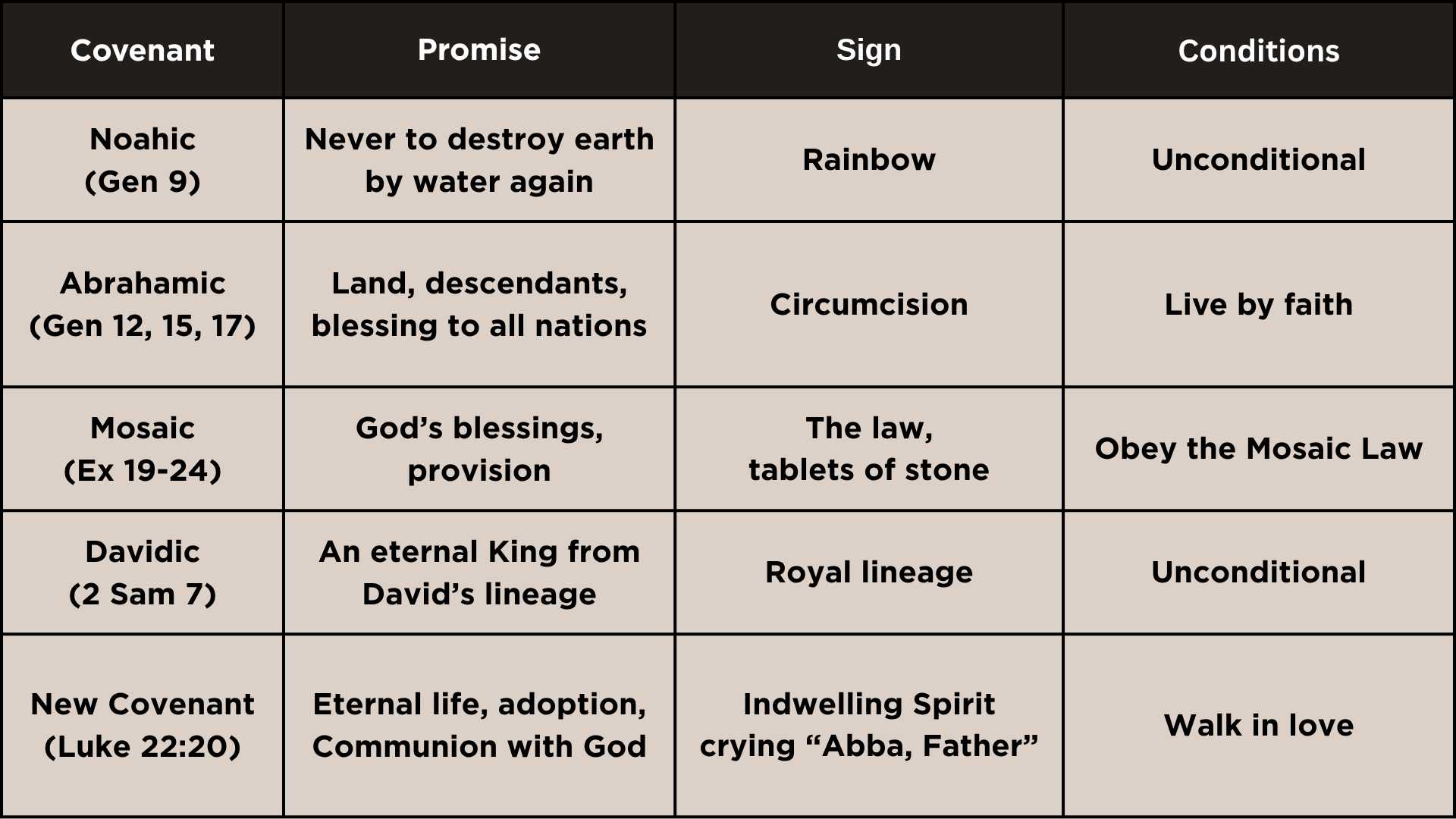
4. The sixth Covenants that no one talks about.
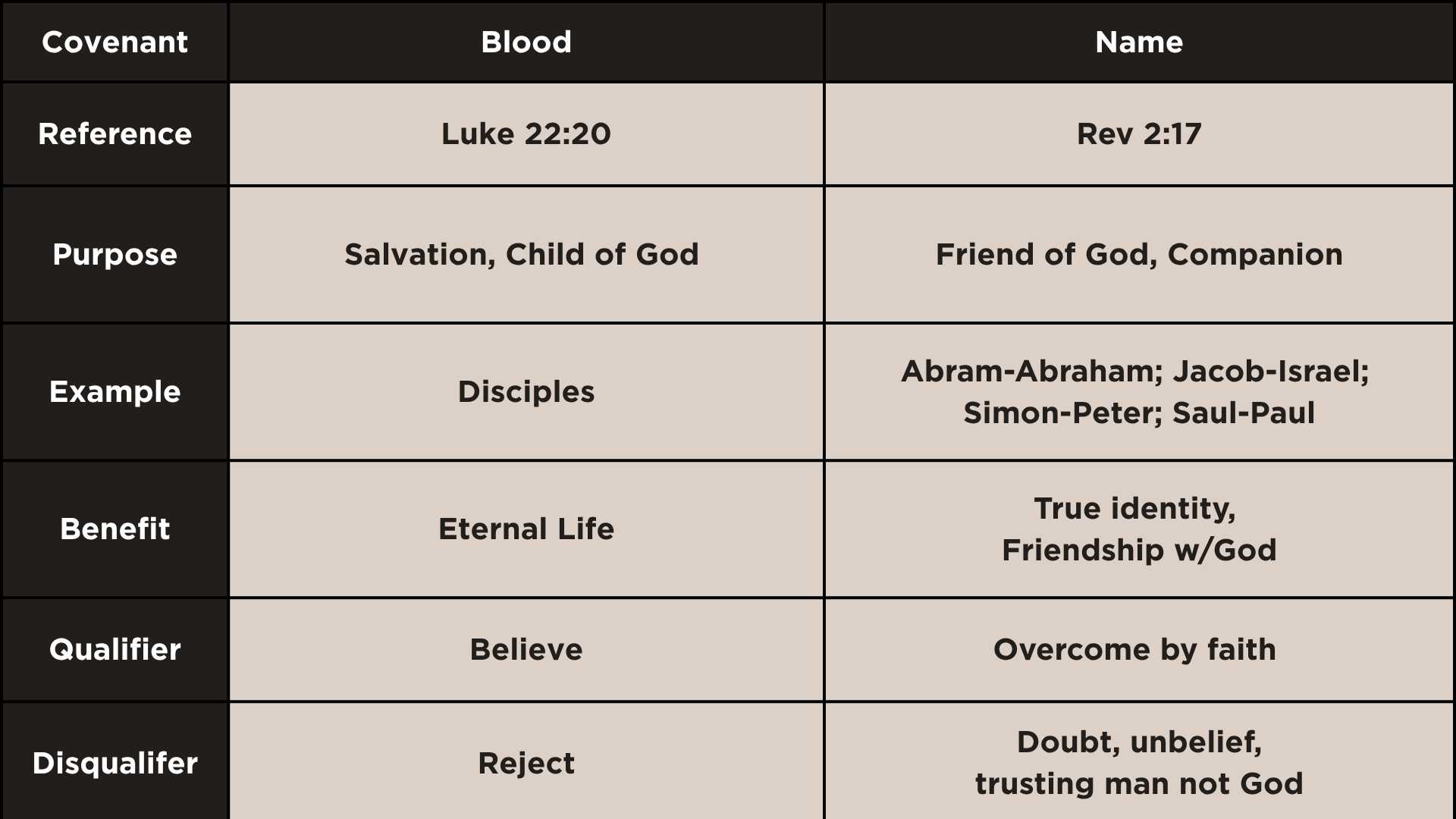
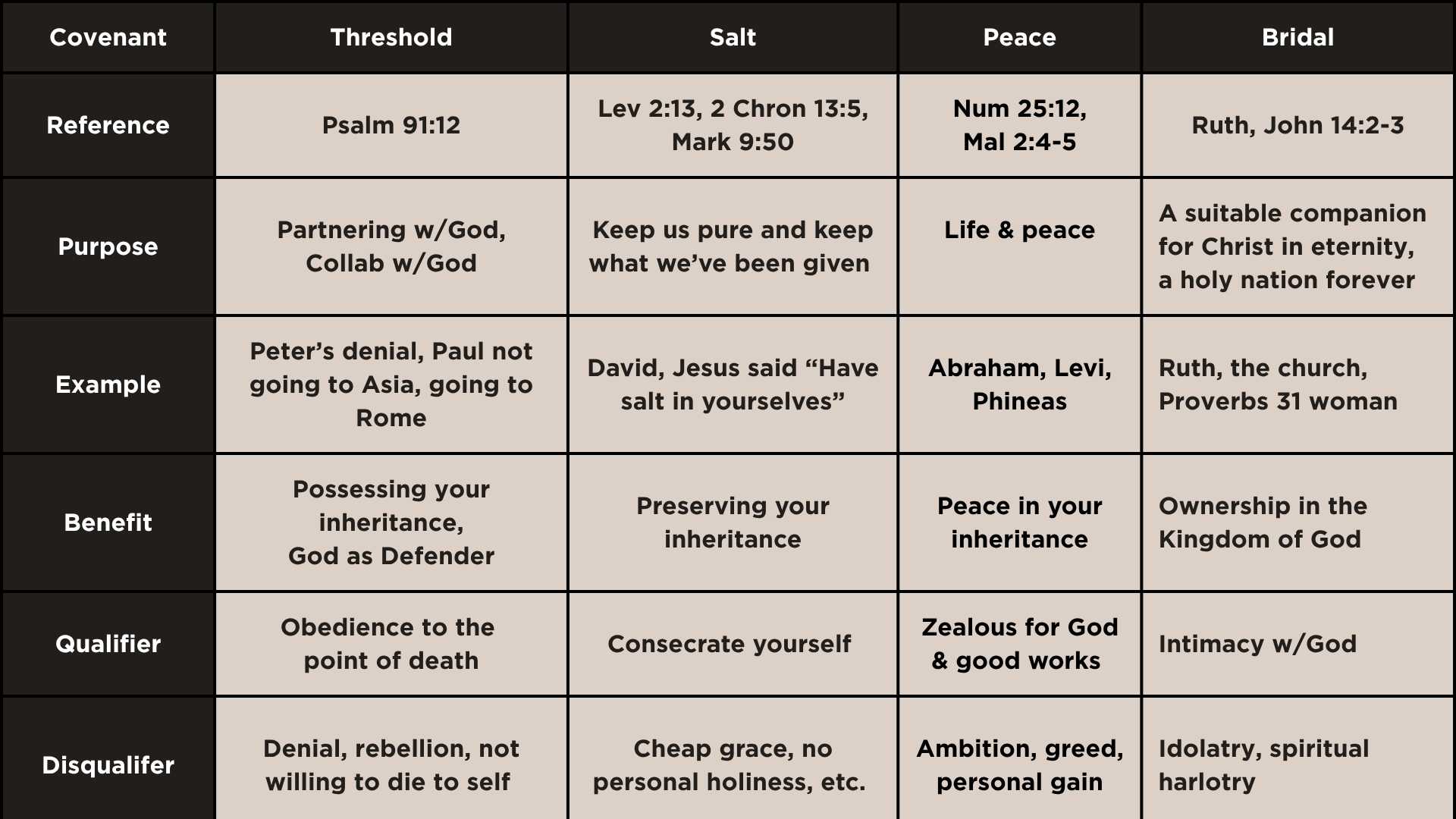
5. The Takeaway: Tithing is the work of faith required for the Abrahamic Covenant.
a. The first one, the blood covenant, provides for our salvation. The others provide for our life on this side of eternity.
b. The second one, the name covenant, is fundamental to all the others, because you can’t enter your inheritance (your Eph 2:10 purpose) if you don’t know who you are.
c. Gal 3:29 establishes that we are subject to the covenant of Abraham, we must live by faith.
d. That faith is shown by whether or not we tithe.
e. James 2:14-26 vs 22 “by works faith was made perfect.”
6. We don’t want to have a saved soul but a wasted life.
7. Tithing is the work of faith required for the Abrahamic Covenant.
a. Luke 16:10&11
b. We wonder why we don’t see many great miracles, many great works of faith.
c. Have we ever considered that it’s because we haven’t been faithful with money, so why would God give us the true riches?
D. Where does the tithe go?
1. Malachi 3:10
2. The storehouse is your local church.
a. The rule of thumb is: you tithe where you get fed and ministered to.
b. Another way of saying it is to tithe where you intend to reap.
3. Tithing is community building.
4. What if your finances are tight.
a. Start somewhere and show Father the intention of your heart.
b. The curse is only broken through giving, so there is no way around giving.
c. Ask God to allow you to increase so that you can give more and affirm the covenant.
III. Offerings, Alms and First Fruits.
A. Offerings.
1. Hebrew: “minha”, gift or a present.
2. Anything above the tithe, given to fund a ministry or project. (Missions, etc.) Offerings do not replace tithe.
3. The principle of seed giving comes from 2 Corinthians 9:6-11 “God gives seed to the
sower.”
4. This is the only type of giving out of the four where we give our money to God.
B. Alms (benevolence): giving to someone in need out of compassion for them.
1. Proverbs 19:17
2. Proverbs 21:13
3. Proverbs 28:27
4. Acts 10:4
D. Firstfruits.
1. Proverbs 3:9&10
2. Romans 11:16
3. The principle of first fruits says that if we honor God with the first portion of our increase or income, that act of giving will sanctify or make the holy the rest of our income.
4. The first fruits is the first of any increase that you receive, i.e., a pay raise, bonus, etc.

